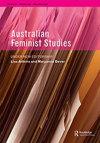缝合心碎的故事:用生命之初的死亡和死亡技术巧妙地活着
IF 1.5
4区 社会学
Q2 WOMENS STUDIES
引用次数: 0
摘要
摘要我的第一个孩子在三周大的时候就去世了。这篇汽车民族志文章以这一悲剧事件让我提出的一个问题为出发点:当技术涉及到结束或拯救像我儿子这样的儿童的生命时,技术如何重新配置对死亡的责任?关于这个问题,我在生殖研究中介绍了一个新的研究议程,即技术如何重塑死亡和生命之初的死亡。根据代理现实主义中的现象概念,我研究了当我讲述儿子的故事,以及媒体和医学故事时,责任是如何以不同的方式出现的,这些故事讲述的是胎儿或婴儿在被诊断为左心发育不良综合征后死亡的。我表明,我们需要挑战自主主体的观念,这种观念塑造了笛卡尔对道德和责任的理解。通过将心碎的故事拼接在一起,我的故事讲述不仅是对女权主义伦理的呼吁,即用死亡和在生命之初死亡的技术来应对生活,也是一种寻找应对胎儿和婴儿死亡的做法的方式。本文章由计算机程序翻译,如有差异,请以英文原文为准。
Stitching Stories of Broken Hearts: Living Response-ably with the Technologies of Death and Dying at the Beginning of Life
ABSTRACT Born with half a heart, my firstborn child died when he was three weeks old. This auto-ethnographic article takes as its point of departure one of the questions that this tragic event made me ask: How do technologies reconfigure responsibility for death, as technologies are involved in ending or saving the lives of children like my son? With this question, I introduce a new research agenda within reproductive studies regarding how technologies remake death and dying at the beginning of life. Drawing on the notion of phenomena from agential realism, I examine how responsibility emerges in different ways as I tell my son’s story together with media and medical stories told about foetuses or infants who died after having been diagnosed with hypoplastic left heart syndrome. I show that we need to challenge the idea of the autonomous subject that shapes the Cartesian understanding of ethics and responsibility. By stitching stories of broken hearts together, my storytelling is not only a call for a feminist ethics of living response-ably with technologies of death and dying at the beginning of life, it is a way to find response-able practices of living with the deaths of foetuses and infants.
求助全文
通过发布文献求助,成功后即可免费获取论文全文。
去求助
来源期刊

Australian Feminist Studies
WOMENS STUDIES-
CiteScore
2.50
自引率
0.00%
发文量
7
期刊介绍:
Australian Feminist Studies was launched in the summer of 1985 by the Research Centre for Women"s Studies at the University of Adelaide. During the subsequent two decades it has become a leading journal of feminist studies. As an international, peer-reviewed journal, Australian Feminist Studies is proud to sustain a clear political commitment to feminist teaching, research and scholarship. The journal publishes articles of the highest calibre from all around the world, that contribute to current developments and issues across a spectrum of feminisms.
 求助内容:
求助内容: 应助结果提醒方式:
应助结果提醒方式:


